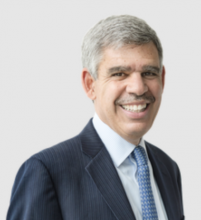You are here
Boosting S. Africa’s diversity dividend
Feb 27,2017 - Last updated at Oct 29,2023
After an insight-filled and enjoyable visit to South Africa — my first to this beautiful country in 15 years — I am leaving with mixed feelings.
The country’s ongoing process of economic and political development has left those living here, as well as concerned observers like me, both hopeful and worried about the future.
A quarter-century ago, South Africa embarked on its extraordinary transition away from nearly 50 years of stifling apartheid, by following Nelson Mandela’s principled vision to “forgive but never forget”.
When its black majority was finally given a say in governance, it elected an African National Congress (ANC) government that, by refraining from confiscating and nationalising private property held by the privileged minority, distinguished the country from many others, in Africa and elsewhere, which have emerged from repressive colonial rule.
Instead, the Mandela-led government recognised the country’s diversity as a potential source of long-term unity and well-being, and decided to pursue a remarkably inclusive approach.
This model has inspired many others outside of South Africa, not least in countries still ruled by authoritarian regimes that use fear tactics to maintain their grip on power.
Mandela’s approach showed that orderly and inclusive transitions are possible, and that previously suppressed and imprisoned freedom advocates can transform themselves to form a legitimate and effective government.
But the outcomes of South Africa’s transition are far from perfect. Today, growth is insufficiently inclusive and far too slow, with the annual GDP growth barely positive last year.
The country’s Gini coefficient is one of the worst in the world, reflecting stark levels of income inequality; its rate of unemployment, at 26.5 per cent, is alarmingly high and hits young people the hardest; and too many people are stuck in disastrous poverty cycles.
Poor governance has undoubtedly contributed to this disappointing situation, which falls short of what Mandela envisioned for the country he loved. Among other things, the government has mismanaged public finances, and it has stumbled in its pursuit of a new economic-growth model.
At the same time, falling commodity prices in recent years have only added to the economy’s economic and monetary challenges.
With the country performing well below its considerable potential, “black economic empowerment” efforts that are meant to reduce historical inequalities have suffered.
But public-sector shortfalls, which have become more visible and better understood recently, are not the only reason for this. Another, less visible problem is that private businesses’ own efforts to ensure diversity have not gained sufficient traction.
South African companies are not the only ones to struggle in this area.
In fact, much of the business community around the world, including in the West, is still trying to figure out how to make inclusion and diversity programmes successful, including with respect to levelling a playing field that is still tilted against women.
Research has shown that inclusion is good for business. As a result, many Western companies recognise that introducing more diversity into the decision-making process at most levels will boost their resilience and agility.
But they are still struggling to overcome blind spots and biases, both conscious and unconscious, stemming from structural and behavioural obstacles that women face, especially when trying to secure senior positions for which they are amply qualified.
As Harvard University’s Mahzarin Banaji, for example, has demonstrated, companies fall victim to blind spots and unconscious biases for a variety of reasons.
These include the manner by which our brains have evolved, childhood exposures and experiences, historical interactions, and heuristic shortcuts that we unconsciously use to interpret information and frame issues.
Countering these factors will require companies to figure out how to sustain the heightened states of awareness and understanding that bring biases to light.
South African companies, particularly in the financial sector, can no longer pay only lip service to inclusion.
They will need to implement behavioural nudges and modify corporate structures in order to encourage more inclusive, merit-based behaviours.
CEOs and senior management teams must revamp their operations, remind their colleagues of the strong business case for diversity, and make a much stronger effort to identify, train and mentor talented individuals of all races.
Specifically, they should expand individual and collective apprentice-based and vocational programmes, modernise their methods for measuring performance and intensify their efforts to include recent research on the benefits of cognitive diversity and “superadditivity” in internal and external communications.
We should all be on guard against the risk of outdated influences affecting our behaviours and decisions.
As I argued in my recent book “The Only Game in Town”, “no company and certainly no country will be able to harvest its realisable potential if it fails to embrace and empower human talent regardless of gender, race, culture, sexual orientation and perspectives”.
South Africa will need much more than improved economic governance if it is to overcome its challenges and unleash its full potential in an increasingly uncertain global economy.
Rather than waiting for the politicians to do something about it, South African businesses should deepen their engagement with ever-broader segments of the population.
Doing so would not only improve productivity, competitiveness and business results over time.
It would also help to reduce the violence that accompanies marginalisation, hopelessness and alienation.
The writer, chief economic adviser at Allianz, was chairman of US president Barack Obama’s Global Development Council and is the author of “The Only Game in Town: Central Banks, Instability, and Avoiding the Next Collapse”. ©Project Syndicate, 2017. www.project-syndicate.org












